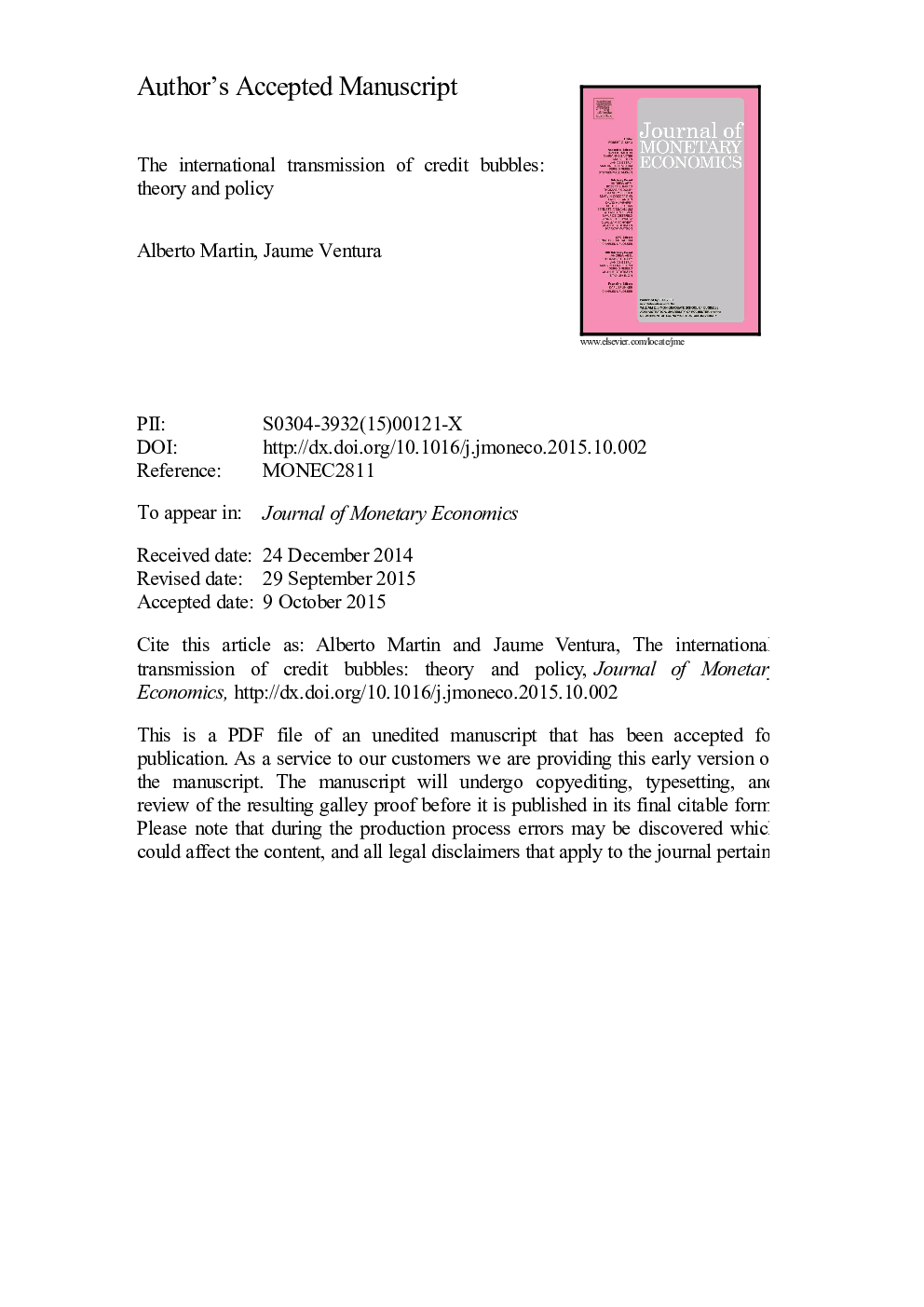| Article ID | Journal | Published Year | Pages | File Type |
|---|---|---|---|---|
| 966490 | Journal of Monetary Economics | 2015 | 43 Pages |
Abstract
We live in a new world economy characterized by financial globalization, historically low interest rates, and frequent credit booms and busts. To study this world, we extend the rational-bubbles framework of Martin and Ventura (2015) to include many countries and general preferences. We find that financial globalization and low interest rates create an environment that is conducive to credit bubbles. These bubbles raise world savings and generate capital flows that may not be efficient. A global planner would adopt a policy of “leaning-against-investor-sentiment”, taxing credit in those times and countries where credit is excessive and subsidizing it elsewhere. An important characteristic of this policy is that it is expectationally robust, in the sense that it isolates the world economy from fluctuations in investor sentiment. This policy may be hard to implement in a decentralized fashion, though, as individual countries are unlikely to internalize the effects of their policies on the world interest rate.
Keywords
Related Topics
Social Sciences and Humanities
Economics, Econometrics and Finance
Economics and Econometrics
Authors
Alberto Martin, Jaume Ventura,
